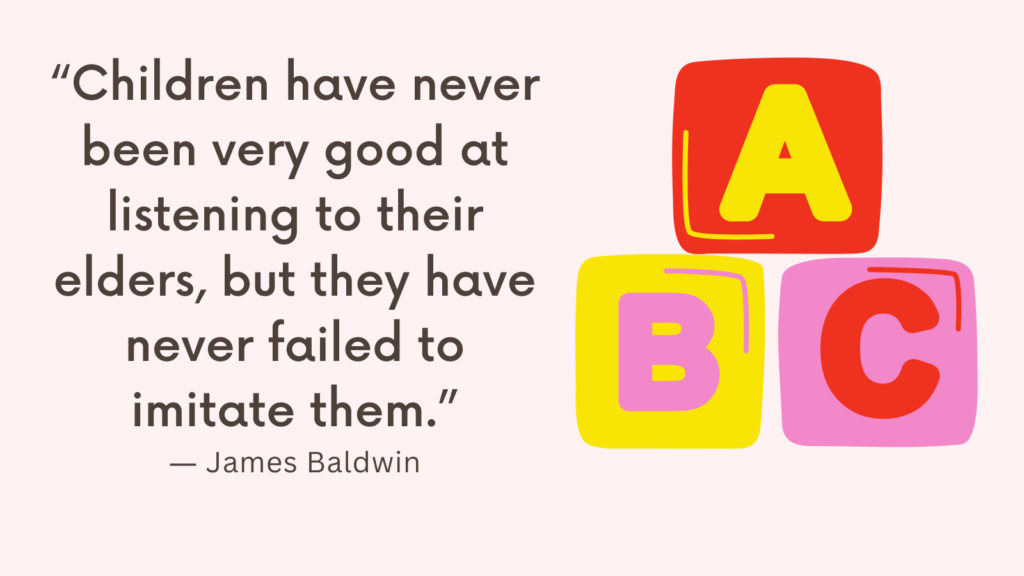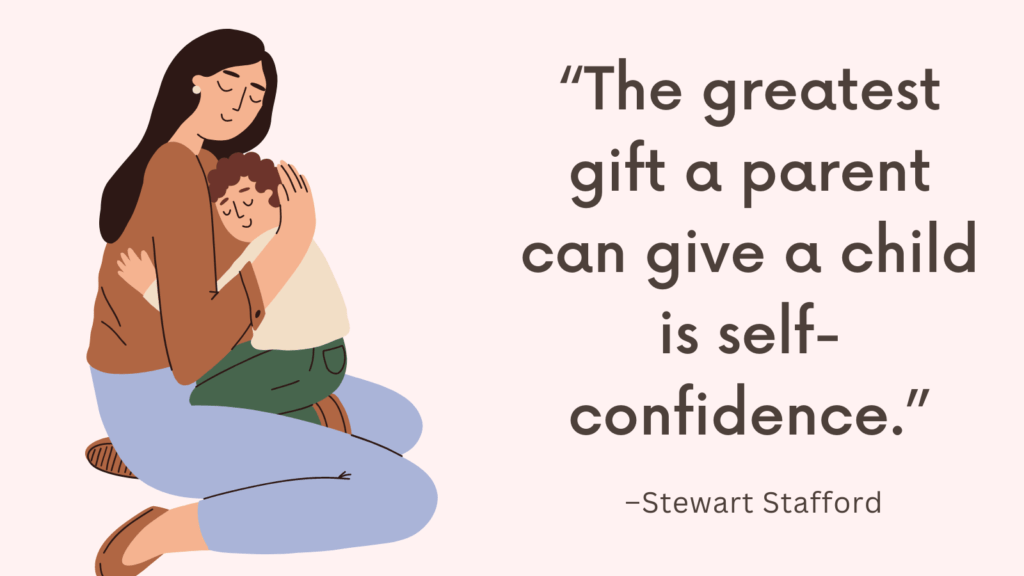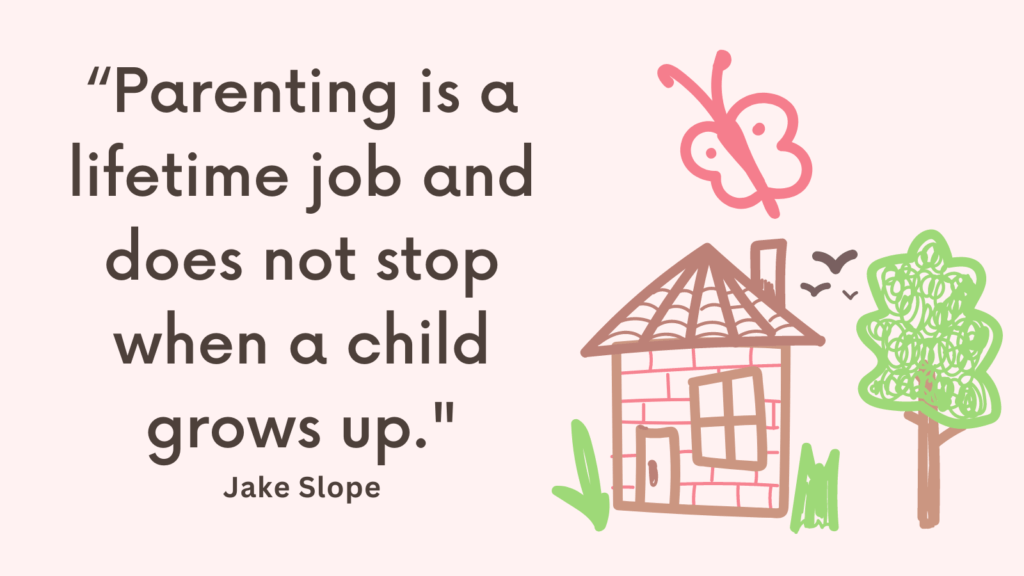In this post, you’re going to learn how to help your child accept a new relationship.
How to Help Your Child Accept a New Relationship?
Introducing a new romantic partner into your life can be exciting, but it can also present challenges when it comes to helping your child accept this new relationship.
1. Timing and Open Communication
Timing is crucial when discussing a new relationship with your child.
Ensure that the relationship is stable and committed before introducing your child to your partner.
Once you feel it is appropriate, engage in open and honest communication.
Explain why you desire companionship and highlight the qualities you appreciate in your new partner.
Encourage your child to express their thoughts and feelings while assuring them that their emotions are valid and respected.
2. Normalize Emotions
Understand that your child might experience a range of emotions upon learning about your new relationship, including confusion, anger, sadness, or jealousy.
Normalize these feelings by validating their emotional experience.
Avoid dismissing or minimizing their emotions, as this might lead to resistance or increased negativity.
Instead, emphasize that it is natural to feel this way during times of change and reassure them that their feelings will be taken into consideration.
Related: How To Deescalate A Child? Top 12 Tips
3. Provide Reassurances
During this transition, your child may worry about their place in your affections or fear being replaced.
Offer reassurances that your love for them remains unchanged and that your new partner does not diminish the quality of your relationship.
Reinforce the notion that love is expansive and can be shared without detracting from existing connections.
4. Slow and Gradual Introductions
Introduce your new partner to your child gradually and when they feel comfortable.
Start with casual meetings in neutral settings, such as going for a fun outing or having a shared dinner.
This approach allows your child to form their own impressions at their own pace, reducing potential feelings of intrusion or overload.
Related: Top 11 Parenting Myths That Are All Too Easy To Believe
5. Maintain Normal Routines and Boundaries
It is important to maintain consistency during this transition period.
Continue prioritizing the existing routines, rules, and traditions that provide your child with stability and a sense of security.
Ensure that your new partner respects these boundaries and collaborates with you in maintaining them.
By doing so, your child will feel more comfortable accepting the changes taking place.
6. Encourage Bonding Activities
Promote positive interactions between your child and your new partner by organizing activities that encourage bonding.
Involve your child in age-appropriate activities such as playing games, engaging in hobbies, or cooking together.
Encourage open communication and active listening to foster understanding and forge connections based on shared interests and experiences.
Related: Best 10 Gentle Parenting Books
7. Seek Professional Support if Needed
If your child continues to struggle with accepting the new relationship despite your efforts, consider seeking professional support.
A psychologist or family therapist can provide additional guidance, help uncover underlying concerns, and suggest effective interventions tailored to your specific circumstances.
8. Maintain Healthy Coping Mechanisms
Modeling healthy coping mechanisms is essential.
Show your child that you manage your own emotions in a constructive manner by practicing self-care, engaging in stress-reducing activities, and seeking support when needed.
By demonstrating effective coping strategies, you provide your child with valuable tools to navigate their own emotional challenges.
Related: Feeling Guilty For Getting Angry With Baby? 5 Ways to Overcome Parenting Guilt
Conclusion
Helping your child accept a new relationship requires open communication, validation of emotions, reassurances of love, gradual introductions, maintaining routines and boundaries, promoting bonding activities, seeking professional support if necessary, and modeling healthy coping mechanisms.
By implementing these strategies, you can assist your child in adjusting to this significant change with greater ease and foster a supportive environment for their emotional well-being.
Remember to be patient and understanding as your child works through their emotions, allowing them the time and space to adjust to this new aspect of their life.
FAQ
My child seems angry and resentful towards my new partner. How can I address this?
It is important to validate and acknowledge your child’s anger and resentment.
Encourage them to express their feelings, and actively listen without becoming defensive.
Validate their experience while also conveying that it is not their fault and that you understand their perspective.
Offer reassurances that their feelings will be taken into consideration as the relationship progresses.
Related: Best 10 Children’s Books About Self Esteem
What if my child feels jealous or fears being replaced?
Jealousy and fear of being replaced are common concerns for children in this situation.
Reassure your child that your love for them remains unchanged and that your new partner does not diminish your relationship with them.
Emphasize that love is expansive and can be shared without decreasing its quality or intensity.
Should I introduce my child to my new partner right away?
Timing is crucial when introducing your child to your new partner.
It is best to wait until the relationship is stable and committed before arranging a meeting.
Once you decide it is appropriate, introduce your child gradually, starting with casual encounters in neutral settings.
Allow them to form their own impressions at their own pace, minimizing any feelings of intrusion or overload.
Related: How to Build Confidence in a Sensitive Child? Top 7 Tips
What if my child is resistant to accepting the new relationship despite my efforts?
If your child continues to struggle with accepting the new relationship, it may be beneficial to seek professional support.
A psychologist or family therapist can provide guidance, help uncover underlying concerns, and suggest interventions tailored to your specific circumstances.
How can I maintain a sense of stability during this transition?
It is essential to maintain normal routines, rules, and traditions that provide your child with stability.
Ensure that your new partner respects these boundaries and collaborates with you to uphold them.
Consistency in routines helps your child feel secure amidst the changes taking place.
Is it normal for my child to grieve their previous family structure?
Yes, it is entirely normal for children to grieve the loss of their previous family structure, even if it was not perfect.
Validate their feelings of loss and provide reassurance that change can be difficult but can also lead to new opportunities for growth and happiness.
Related: Does My Child Need Counseling Quiz




